Abstract
Crude extracts of the anaerobic, cellulolytic protozoan Trichomitopsis termopsidis possessed endo-β-1,4-glucanase and cellobiase activities, as evidenced by hydrolytic action on carboxymethyl cellulose and cellobiose, respectively. Cell extracts also hydrolyzed microcrystalline cellulose. Hydrolysis of microcrystalline cellulose displayed optima at pH 5 and at 30°C, and glucose was the sole product liberated. Cellulolytic activities of T. termopsidis appeared to be entirely cell associated. Hydrolytic activity was also detected against Douglas fir wood powder, xylan, starch, and protein, but not chitin. The importance of these enzymes in the nutrition of T. termopsidis is discussed in terms of the natural habitat of this protozoan (the hindgut of wood-eating termites).
Full text
PDF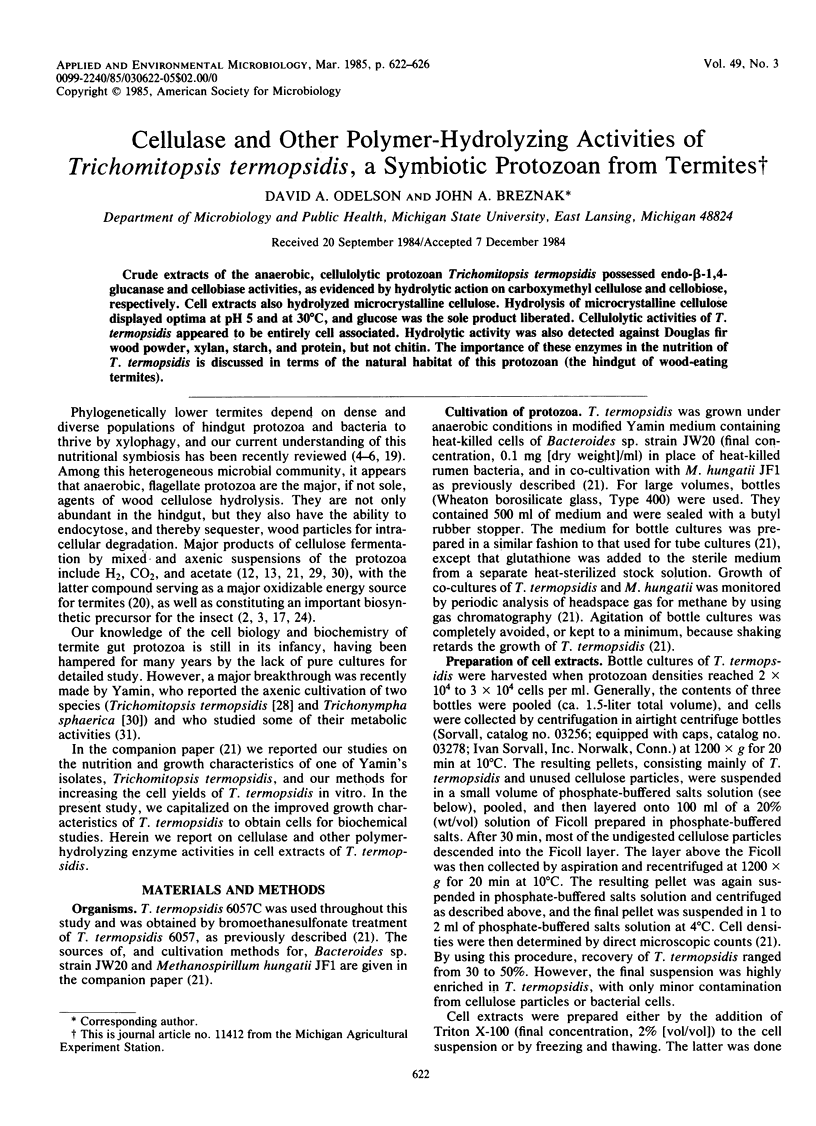
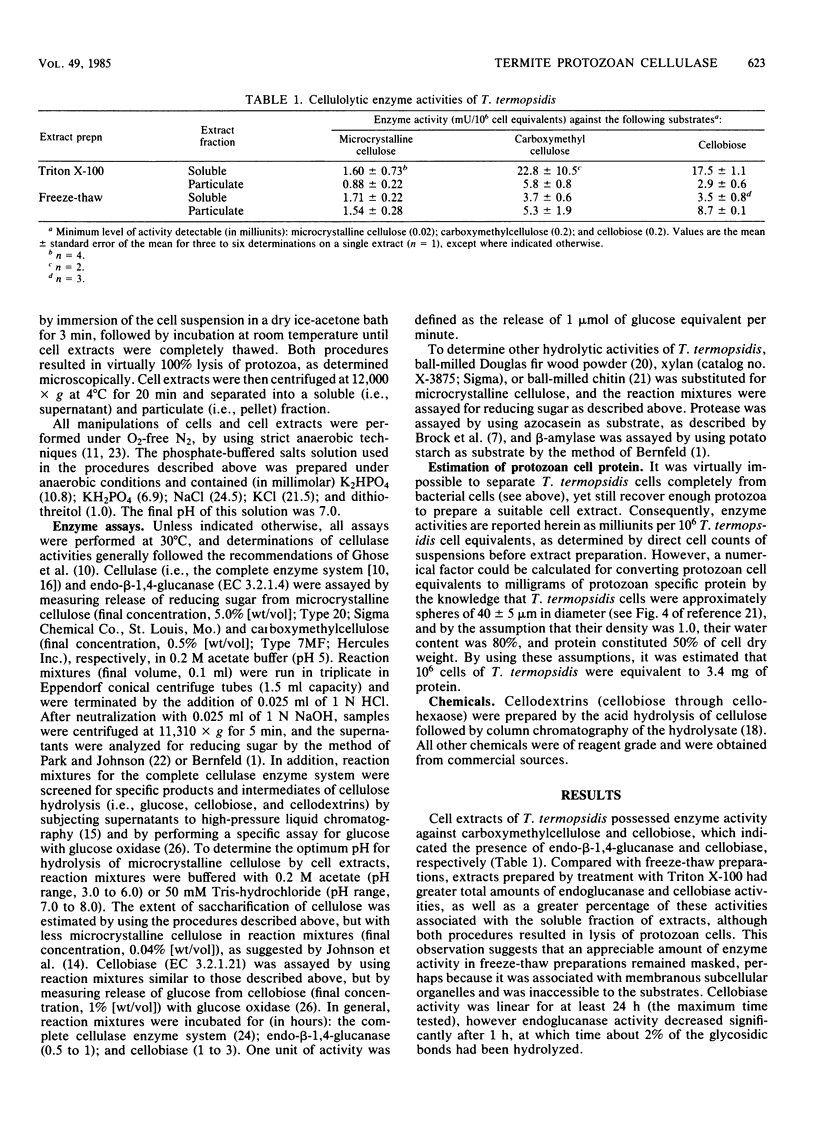
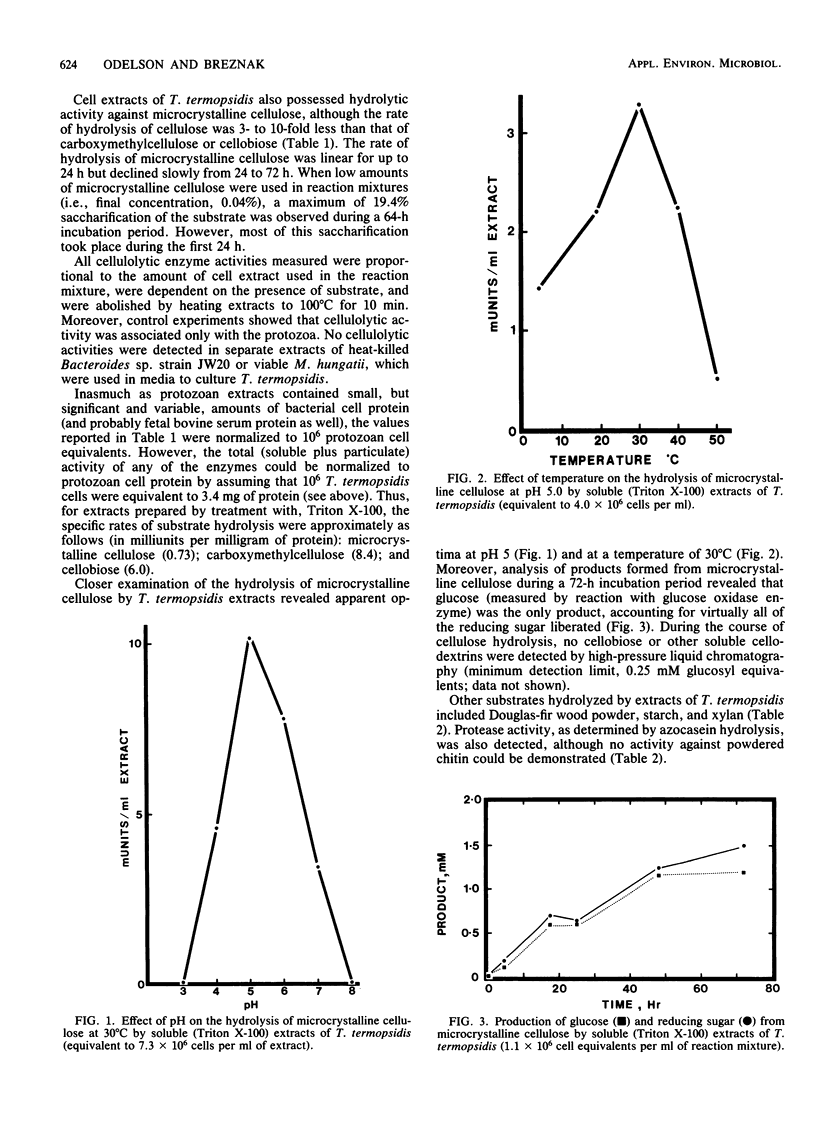
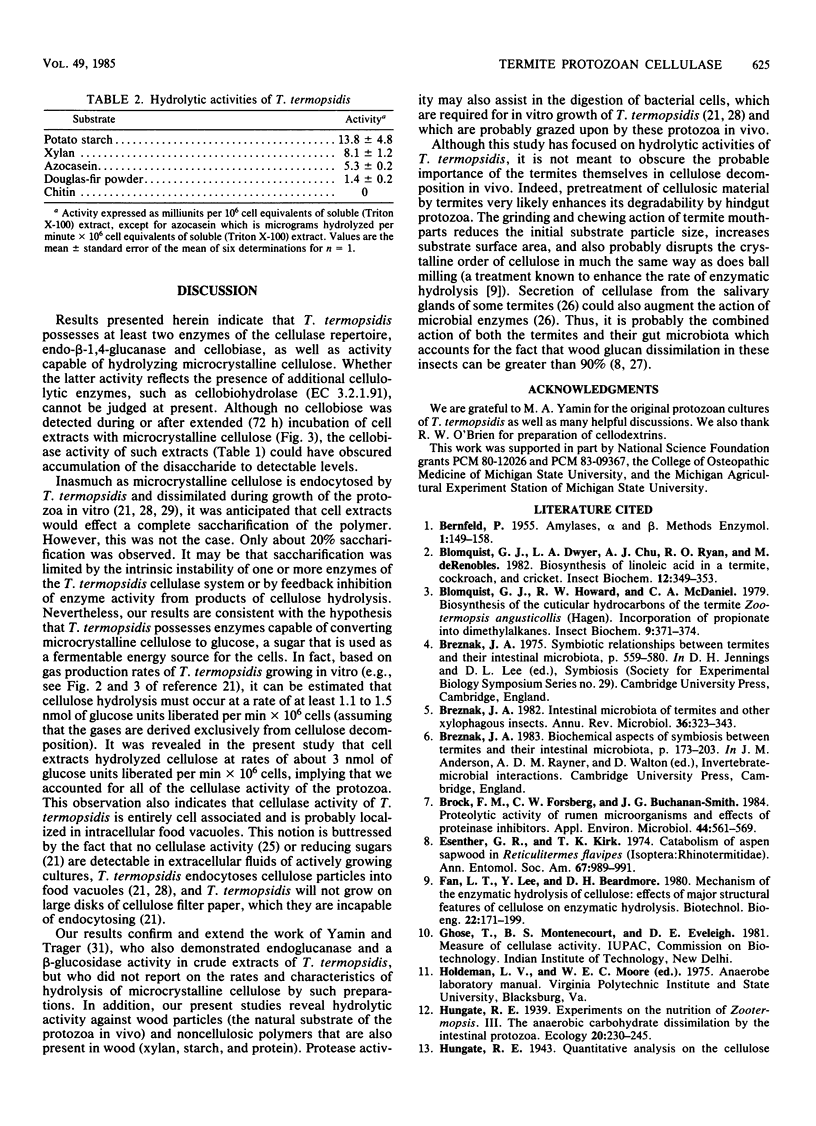
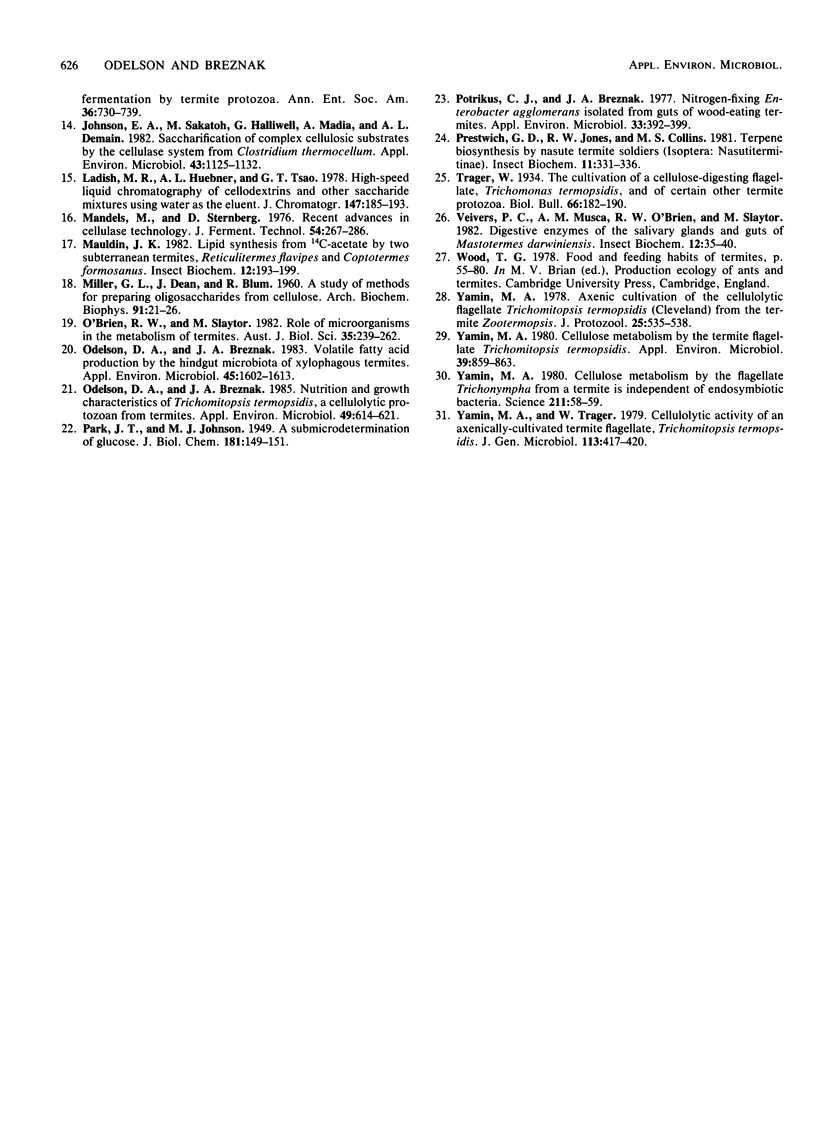
Selected References
These references are in PubMed. This may not be the complete list of references from this article.
- Breznak J. A. Intestinal microbiota of termites and other xylophagous insects. Annu Rev Microbiol. 1982;36:323–343. doi: 10.1146/annurev.mi.36.100182.001543. [DOI] [PubMed] [Google Scholar]
- Breznak J. A. Symbiotic relationships between termites and their intestinal microbiota. Symp Soc Exp Biol. 1975;(29):559–580. [PubMed] [Google Scholar]
- Brock F. M., Forsberg C. W., Buchanan-Smith J. G. Proteolytic activity of rumen microorganisms and effects of proteinase inhibitors. Appl Environ Microbiol. 1982 Sep;44(3):561–569. doi: 10.1128/aem.44.3.561-569.1982. [DOI] [PMC free article] [PubMed] [Google Scholar]
- Johnson E. A., Sakajoh M., Halliwell G., Madia A., Demain A. L. Saccharification of Complex Cellulosic Substrates by the Cellulase System from Clostridium thermocellum. Appl Environ Microbiol. 1982 May;43(5):1125–1132. doi: 10.1128/aem.43.5.1125-1132.1982. [DOI] [PMC free article] [PubMed] [Google Scholar]
- Odelson D. A., Breznak J. A. Nutrition and Growth Characteristics of Trichomitopsis termopsidis, a Cellulolytic Protozoan from Termites. Appl Environ Microbiol. 1985 Mar;49(3):614–621. doi: 10.1128/aem.49.3.614-621.1985. [DOI] [PMC free article] [PubMed] [Google Scholar]
- Odelson D. A., Breznak J. A. Volatile Fatty Acid production by the hindgut microbiota of xylophagous termites. Appl Environ Microbiol. 1983 May;45(5):1602–1613. doi: 10.1128/aem.45.5.1602-1613.1983. [DOI] [PMC free article] [PubMed] [Google Scholar]
- PARK J. T., JOHNSON M. J. A submicrodetermination of glucose. J Biol Chem. 1949 Nov;181(1):149–151. [PubMed] [Google Scholar]
- Potrikus C. J., Breznak J. A. Nitrogen-fixing Enterobacter agglomerans isolated from guts of wood-eating termites. Appl Environ Microbiol. 1977 Feb;33(2):392–399. doi: 10.1128/aem.33.2.392-399.1977. [DOI] [PMC free article] [PubMed] [Google Scholar]
- Yamin M. A. Cellulose Metabolism by the Termite Flagellate Trichomitopsis termopsidis. Appl Environ Microbiol. 1980 Apr;39(4):859–863. doi: 10.1128/aem.39.4.859-863.1980. [DOI] [PMC free article] [PubMed] [Google Scholar]
- Yamin M. A. Cellulose metabolism by the flagellate trichonympha from a termite is independent of endosymbiotic bacteria. Science. 1981 Jan 2;211(4477):58–59. doi: 10.1126/science.211.4477.58. [DOI] [PubMed] [Google Scholar]


